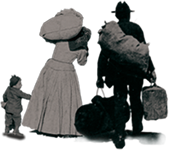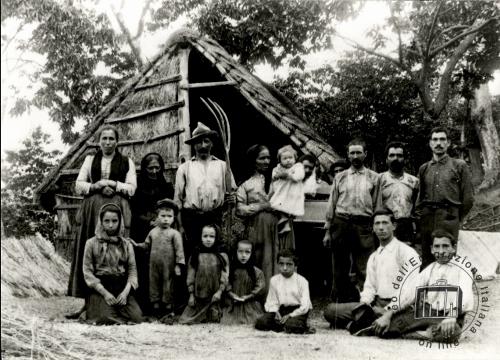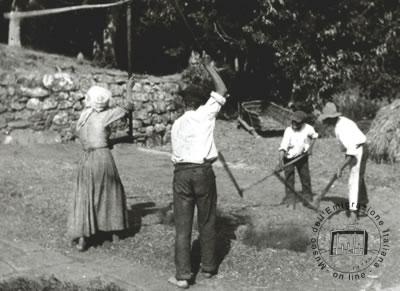Peasants excluded from the agricultural circuit could find no different employment in a country still at the beginning of industrialization. Francesco Saverio Nitti icastically argued that for them, oppressed by the exploitation of the masters and rich only in debt, the choice was "brigands or emigrants." He also hoped that emigration would become a factor of modernization. Emigrants would "study and import" upon their return the mentality, rules and rhythms of modern times. Thus, to put it in words that could not yet be in Nitti's vocabulary, Christ would be able to continue his journey south of Eboli. (1)
In other regions the nascent mechanized industry cut skilled artisans and skilled laborers out of the labor market. They went to other countries because they offered better opportunities to achieve economic and social goals that were difficult to achieve at home. Men for whom emigration was only one of the possible life choices.
The decision to leave was often made on the call from abroad of relatives or friends and also found comfort in the "emigrant guides" very often produced by countries that wanted to attract labor from Europe. They showed images of paradise on earth: boundless plains with exuberant vegetation, neat houses, orderly city districts.
(1) Carlo Levi, a young intellectual from Turin, in the years of fascism was sentenced to confinement in Lucania where he wrote the novel "Christ Stopped at Eboli." The title echoed a peasant saying to signify that his own world was still outside history.



